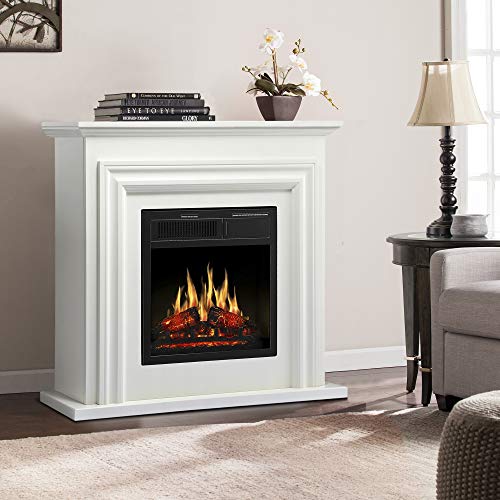The Ultimate Guide to Fireplace Stores: Everything You Need to Know
Fireplaces have actually long been a sign of warmth, convenience, and design within a home. They develop a centerpiece in living areas and offer a cozy atmosphere for families and pals to gather around. As an outcome, the fireplace market has seen a surge in demand for numerous designs, designs, and devices. This article explores what to consider when visiting a fireplace store, kinds of fireplaces readily available, and responses to often asked questions, offering a thorough introduction for house owners wanting to make a purchase.
The Importance of Choosing the Right Fireplace Store
Buying a fireplace is a substantial investment, making it necessary for house owners to pick a trustworthy and educated fireplace store. Here are some reasons that choosing the right store matters:
- Wide Variety of Options: A reputable fireplace store offers a varied series of fireplaces, including wood-burning, gas, and electric alternatives. This variety makes sure that property owners can find the best fit for their taste and needs.
- Specialist Guidance: Knowledgeable staff can offer valuable insights into the advantages and downsides of each kind of fireplace, assisting customers make informed choices.
- Quality control: Established stores are most likely to carry premium items from trusted brands, making sure consumer fulfillment and safety.
- Installation Services: Many fireplace stores offer installation services and after-sales support, making sure that the unit is not just bought but is also properly installed and kept.
- Modification Options: Some stores provide custom-made fireplaces, accommodating distinct choices in style, size, and functionality.
Kinds Of Fireplaces Available
When checking out a fireplace store, consumers will encounter numerous types of fireplaces. Comprehending these options can assist in choosing the ideal one for a home.
1. Wood-Burning Fireplaces
- Description: Traditional type that utilizes wood logs as fuel.
- Advantages:
- Offers a classic ambiance and the crackling sound of burning wood.
- Can be more economical in regions plentiful in wood supply.
2. Gas Fireplaces
- Description: Uses gas or propane and ignites with the flip of a switch.
- Advantages:
- Easier to operate and preserve than wood-burning designs.
- Supplies a consistent heat output and can be more energy-efficient.
3. Electric Fireplaces
- Description: Uses electricity to generate heat and develop a flame result.
- Benefits:
- Requires no venting, making setup simpler.
- Deals various settings for flame and heat strength.
4. Gel Fuel Fireplaces
- Description: Uses gel fuel containers to develop an authentic flame without venting.
- Benefits:
- Portable and easy to set up.
- No need for a chimney or gas line.
5. Ethanol Fireplaces
- Description: Burns bioethanol fuel, offering a genuine flame.
- Advantages:
- Environmentally friendly with no smoke or ash.
- Can be utilized inside or outdoors.
| Fireplace Type | Fuel Source | Vent Requirement | Setup Cost | Maintenance |
|---|---|---|---|---|
| Wood-Burning | Wood | Yes | Moderate | High |
| Gas | Natural Gas/Propane | Yes (or optional) | Low | Low |
| Electric | Electrical energy | No | Low | Very Low |
| Gel Fuel | Gel Fuel | No | Very Low | Very Low |
| Ethanol | Bioethanol | No | Low | Low |
Elements to Consider When Shopping
When checking out a fireplace store, a number of aspects need to be taken into account before purchasing:
- Space: Measure the area where the fireplace will be set up to ensure the chosen model fits easily.
- Heating Needs: Assess the square footage of the room to determine the necessary heat output.
- Design: Choose a fireplace that matches existing décor, whether it's rustic, modern, or traditional.
- Budget: Set a budget plan that consists of both the system's purchase and installation costs.
- Regional Regulations: Check local building codes concerning fireplace installation to ensure compliance.
Frequently Asked Questions About Fireplace Stores
1. What is the best type of fireplace for a home?
The "best" type depends upon the property owner's requirements and choices. Gas fireplaces are popular for their convenience, while wood-burning fireplaces use a traditional experience.
2. Just how much does a fireplace cost?
Costs can vary substantially based upon the type, design, and installation intricacy. Basic models might begin at a few hundred dollars, while custom systems can go beyond a number of thousand.
3. Are electric fireplaces safe?
Yes, electric fireplaces are generally considered safe. They do not produce real flames or emissions, decreasing the threats connected with traditional fireplaces.
4. How do I maintain my fireplace?
Maintenance differs by type. Wood-burning designs require cleaning of the chimney and flue, while gas fireplaces may need yearly assessments. Electric fireplaces typically need minimal maintenance.
5. Can I install a fireplace myself?
While some electric and gel fireplaces can be installed as DIY tasks, it's normally best to hire specialists for gas and wood-burning fireplaces to guarantee security and compliance with building regulations.
Selecting the best fireplace store is just as essential as deciding on the kind of fireplace itself. House owners should weigh their options thoroughly, considering factors such as setup requirements, heating needs, and general aesthetic appeals. With Best Fireplace and assistance from well-informed staff, customers can confidently select a fireplace that perfectly matches their home while providing heat and convenience for years to come.

